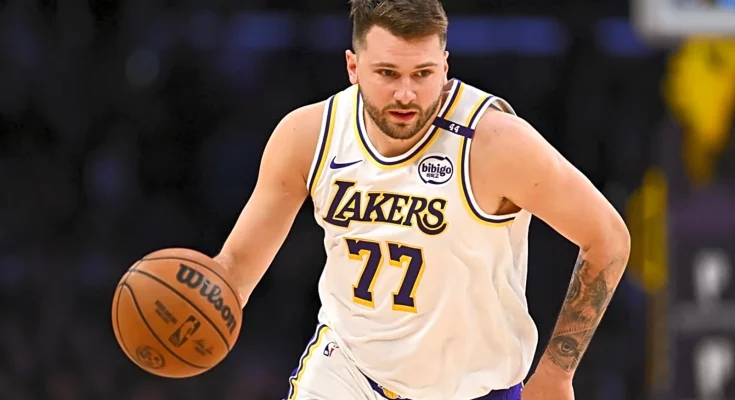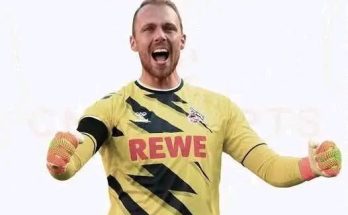In the world of professional basketball, every generation has its icons—players whose names become synonymous with greatness, sacrifice, and an unmatched work ethic. Michael Jordan and Kobe Bryant are two such figures. They were not just great because of their natural talent; they became legends because of their relentless dedication to their craft, their willingness to push past limits, and their fierce desire to win no matter the cost. Now, Luka Doncic, one of the brightest young stars in the NBA, is openly trying to model his training and mindset after these basketball titans. What Luka is doing is more than just homage—it’s a signal that the league is entering a critical phase where star power, work ethic, and basketball IQ will determine not only individual legacies but also the overall health and excitement of the NBA next season.
Luka Doncic has emerged as one of the most dominant and versatile players in the NBA at an incredibly young age. His ability to score, pass, and control the game makes him a unique talent. But despite his natural gifts, Luka recognizes that talent alone isn’t enough to reach the level of the all-time greats. This is why he’s taken a page from the book of MJ and Kobe, who were known for their extraordinary training regimens and mental toughness. “MJ and Kobe, you know, they really did a lot in their careers. They sacrificed a lot,” Luka said in a recent interview. Those words carry more weight than they might seem to at first glance, because they highlight the core truth about elite athletes: the path to greatness requires sacrifice and discipline above all else.
Jordan and Bryant are often cited as prime examples of how far dedication can take an athlete. Jordan was notorious for his six-to-seven days a week training routine, often pushing through injuries, fatigue, and mental barriers. His famous “Flu Game” in the 1997 NBA Finals, where he played through severe illness, epitomized his mindset. Kobe Bryant’s work ethic was similarly legendary—waking up before dawn, practicing for hours, and constantly refining his skills. Kobe’s “Mamba Mentality” has become a widely recognized phrase representing relentless focus and continuous self-improvement.
For Luka Doncic to openly express his desire to train like these icons is a game-changer. It shows a recognition that the modern NBA, with its fast pace and evolving strategies, still requires old-school grit and determination. Luka’s willingness to embrace that philosophy could be the key to elevating not only his game but also the competitive spirit across the league.
However, Luka’s approach also serves as a wake-up call about the NBA’s challenges for the upcoming season. Despite the talent pool, the league is facing significant issues that could impact its overall quality and appeal. Reports of player dissatisfaction, looming contract disputes, and an increasingly competitive free agency market have cast a shadow over the season ahead. With superstars considering their options and teams scrambling to build competitive rosters, the cohesion and continuity that fans crave might be in jeopardy.
The notion that “the league is in trouble next season” is not an exaggeration. The NBA is at a crossroads. On one hand, you have an influx of young, exciting players like Luka Doncic, Ja Morant, and Zion Williamson who can carry the league into the future. On the other hand, there is uncertainty around established stars such as Kevin Durant, LeBron James, and Kawhi Leonard, who could either choose to move to new teams or even consider early retirement. This flux threatens to destabilize traditional power structures in the league and could lead to a period of unpredictability, both on and off the court.
Luka’s commitment to training like MJ and Kobe is particularly relevant in this context because it symbolizes a new generation stepping up to the challenge. The “sacrifice” Luka references isn’t just physical—it’s mental and emotional. He’s acknowledging the tremendous effort it takes to stay at the top in a league that demands constant improvement and adaptation. The NBA has never been more physically demanding, with players needing to maintain peak condition to handle a grueling 82-game season, playoff runs, and off-season expectations.
But there is also a cultural dimension to this shift. In recent years, there has been criticism of some NBA stars for prioritizing personal brands, social media presence, and off-court ventures over traditional training and team responsibilities. While these activities are understandable in today’s world, they can sometimes dilute the focus needed to reach peak athletic performance. Luka’s homage to Jordan and Kobe’s sacrifice and dedication highlights a potential corrective course—reminding everyone that the fundamentals of hard work and relentless training remain the foundation for success.
This brings us to a broader reflection on what the NBA needs to thrive in the coming seasons. Fans crave intense competition, iconic moments, and narratives that transcend individual games. These narratives are built on players like Jordan and Kobe, who embodied more than just basketball skills—they represented a mentality of excellence and sacrifice that resonated beyond the court. Luka Doncic’s public commitment to following in their footsteps offers hope that these values will not disappear amid the league’s current uncertainties.
Yet, the challenges ahead are significant. The NBA will need to address concerns about player retention, competitive balance, and fan engagement. As teams compete for top talent in a free agency market that grows more volatile by the year, smaller market teams risk being left behind. This could reduce the overall competitiveness of the league and harm its global appeal. Meanwhile, the pressure on superstars to maintain peak physical and mental condition while juggling commercial interests continues to grow.
Luka’s example, therefore, should serve as both inspiration and a blueprint. The next generation of NBA stars must find ways to honor the legacies of past greats by committing to the rigorous work ethic that brought those legends to the pinnacle. This means more than just training harder; it means adopting a mindset of continuous growth, resilience, and self-sacrifice.
In the final analysis, Luka Doncic’s decision to train like Kobe Bryant and Michael Jordan sends a powerful message. It reminds us that basketball greatness is not just about raw talent or flashy plays—it’s about sacrifice, dedication, and mental toughness. The league’s future depends on players who are willing to embrace these values amid an increasingly complex and challenging environment.
For fans, this could mean witnessing a renaissance of fierce competition and unforgettable moments. For the league, it could signal a return to a culture of hard work and perseverance that has historically driven the NBA’s popularity and success. But the stakes are high. Without a collective recommitment to these principles by players, teams, and league officials alike, the uncertainties facing the NBA next season could deepen, threatening the excitement and growth the league has worked so hard to achieve.
Ultimately, Luka Doncic’s journey to train like MJ and Kobe is a microcosm of the broader challenges and hopes surrounding the NBA. His example reminds us that in the face of adversity and change, the spirit of sacrifice and relentless effort remains the greatest force in sports—and perhaps in life itself. As the new season approaches, all eyes will be on Luka and his peers to see if they can carry forward the torch of greatness and restore the league’s vibrancy for years to come.



